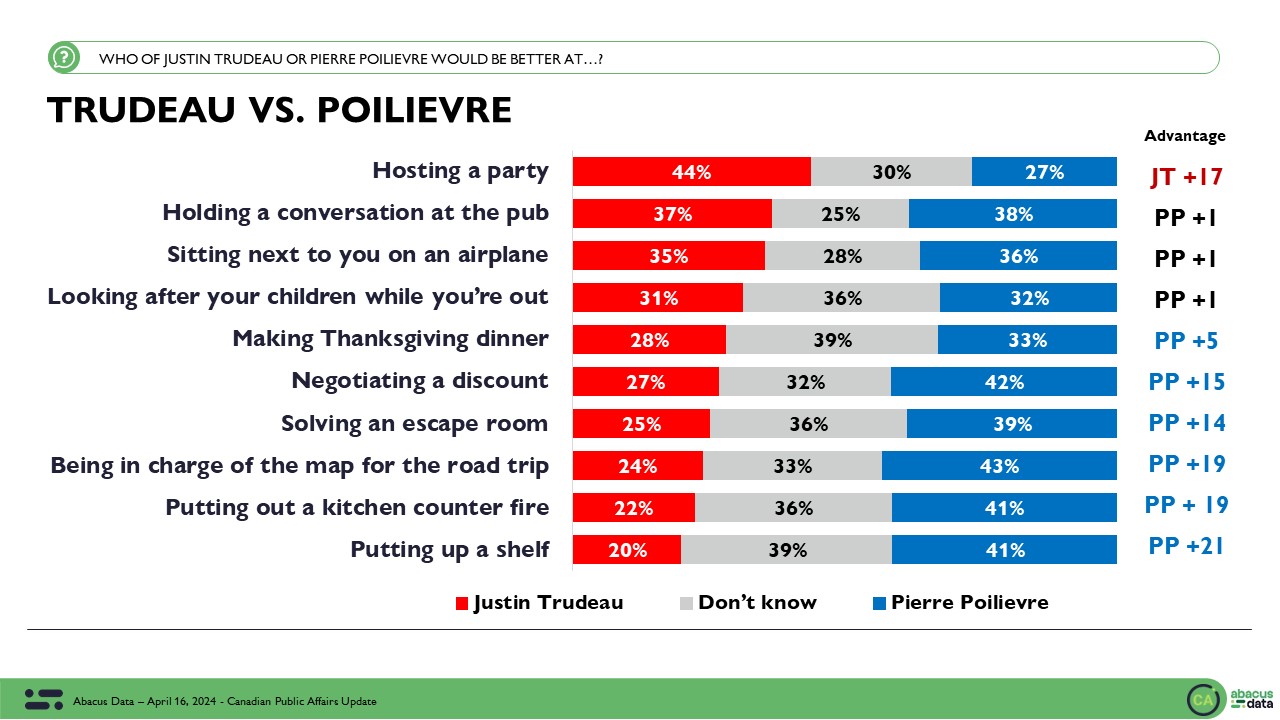Mood of the electorate worsens as perceptions about the economy deteriorate.
August 20, 2015
Feelings about the economy weakened sharply in the last month, and for the first time in our study going back to October 2013 more people say the economy is in poor shape than say it is in good shape. Only 33% think the economy is growing, while 64% think it is shrinking. If there is a bright spot in these numbers it is that the plurality say we are in a mild, rather than a severe recession.
On our second mood indicator, 36% say the country is on the right track (the lowest number we’ve recorded since March 2014, and down 5 points this month). 33% say the country is on the wrong track, the highest number since March of 2014.


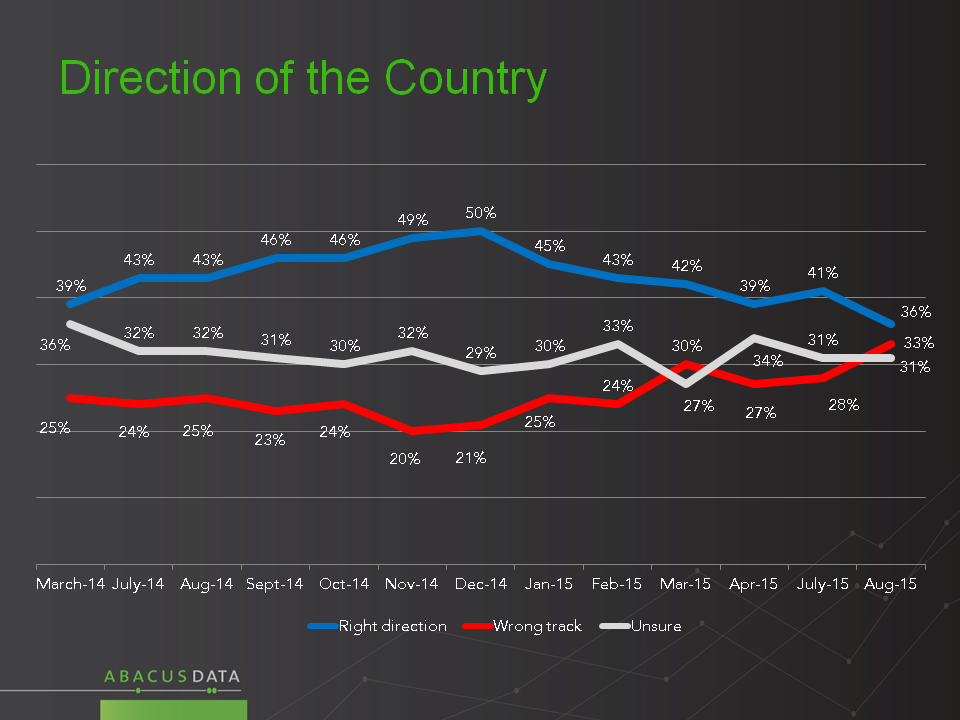
When we compare these three indicators across different voter groups we find that Conservative supporters are far more likely to be optimistic about the direction of the country and the state of the economy, although almost a majority believe Canada is in a recession.
The mood is much more negative among NDP or Liberal Party supporters, and among those who definitely want a change in government.

Making Decisions as Prime Minister
We also asked in this survey, how people felt that the different main party leaders would, do if they were Prime Minister, handling different issues. The results show:
• Majorities say that all three leaders would make good or acceptable decisions on all 15 issue areas tested.
• On all 15 items, more people think a Prime Minister Mulcair or a Prime Minister Trudeau would take good or acceptable decisions than feel that way about Prime Minister Harper.
• Mr. Harper’s strongest marks are on attracting business investment in Canada. His weakest marks are on the Senate and ethical standards in politics. Mr. Harper’s good/acceptable marks range from 52% to 72%.
• Between a low of 73% (oil sands energy) and a high of 86% (ethical standards in politics) say Mr. Mulcair would make good or acceptable decisions.
• Mr. Trudeau’s good/acceptable ratings range from a low of 65% (Islamist extremism) to a high of 80% (youth unemployment/underemployment).
• The gap between Mr. Harper and the other two leaders is widest on the question of raising ethical standards in politics, and on what to do with the Senate. 74% are comfortable that Mr. Trudeau would make good or acceptable decisions on the Senate, 81% say the same thing about Mr. Mulcair, only 52% for Mr. Harper.
• Worth noting as well is that when it comes to your personal taxes and the benefits you get from government, Mr. Harper trails both other leaders, notwithstanding the recent Universal Child Care Benefit initiative, and the government’s significant focus on tax cutting.

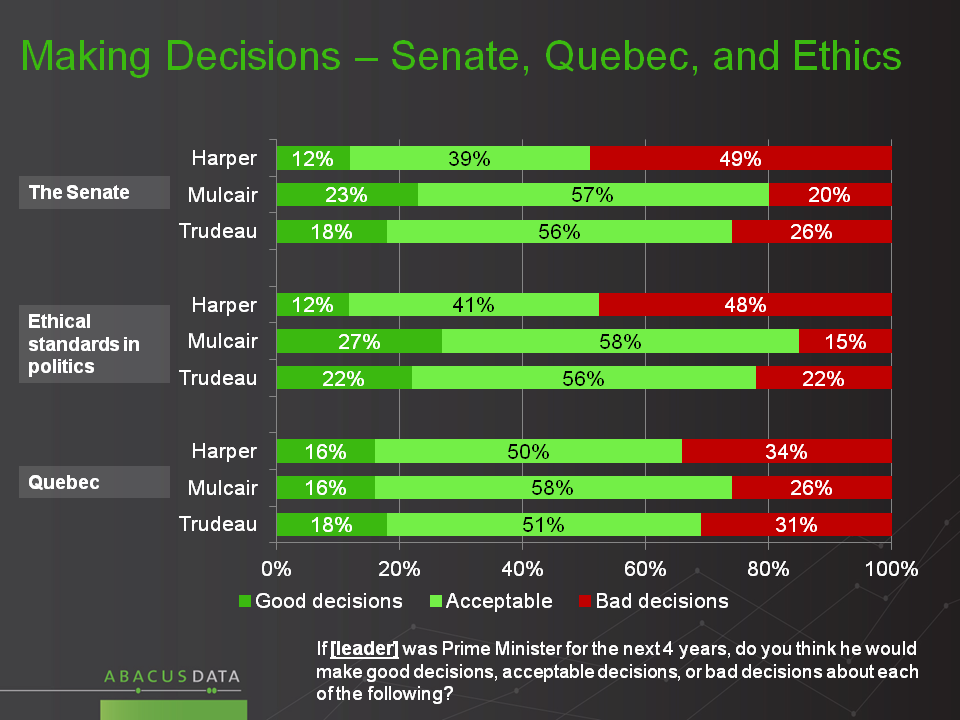
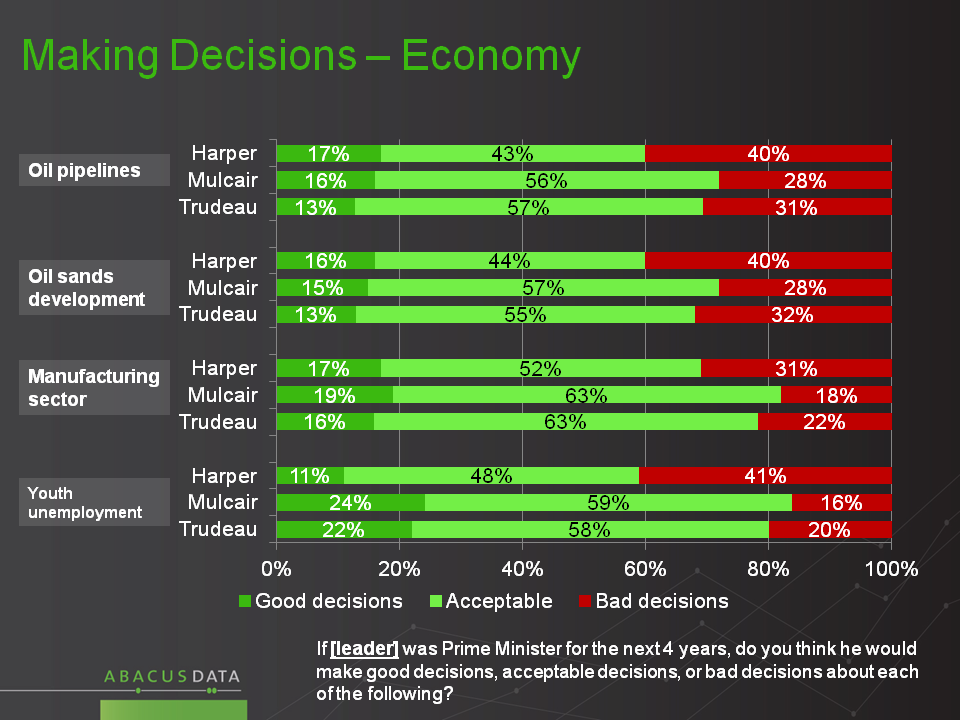
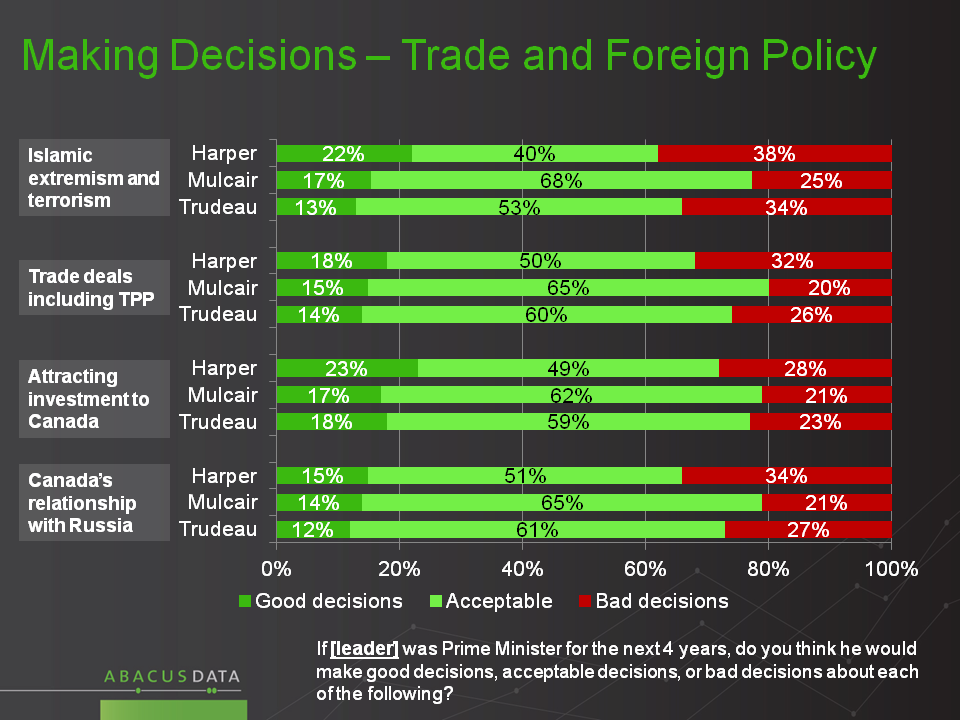
The Upshot
The mood of the country is shifting in a way that represents a headwind for incumbents, and has contributed to a firming up of the desire for change, noted in our first release earlier this week. Still, most people characterize the current economic condition as a mild recession and majorities believe a re-elected PM Harper would make good or acceptable decisions on a wide range of policy matters. A fourth victory remains very possible for Mr. Harper.
At the same time, his experience as an incumbent does not give him a notable advantage over the two opposition leaders. Larger numbers of people think either the Liberal leader or the NDP leader would also make good or acceptable decisions on all 15 issue areas tested.
The race remains very much to be won or lost, with plenty of voters seeing some merits in all three of the main parties and their leaders.
Methodology
Our survey, commissioned by Abacus Data, was conducted online with 1,439 Canadians aged 18 and over from August 14 to 17, 2015. A random sample of panelists was invited to complete the survey from a large representative panel of over 500,000 Canadians, recruited and managed by Research Now, one of the world’s leading provider of online research samples.
The Marketing Research and Intelligence Association policy limits statements about margins of sampling error for most online surveys. The margin of error for a comparable probability-based random sample of the same size is +/- 2.6%, 19 times out of 20. The data were weighted according to census data to ensure that the sample matched Canada’s population according to age, gender, educational attainment, and region. Totals may not add up to 100 due to rounding.
Abacus Data Inc.
We offer global research capacity with a strong focus on customer service, attention to detail and value added insight. Our team combines the experience of our Chairman Bruce Anderson, one of Canada’s leading research executives for two decades, with the energy, creativity and research expertise of CEO David Coletto, PhD.



